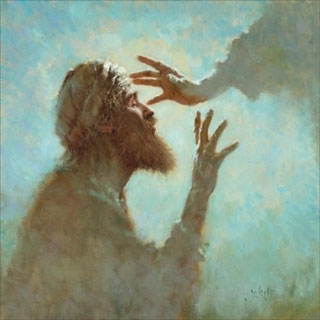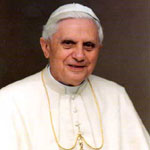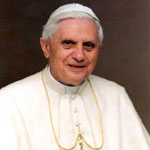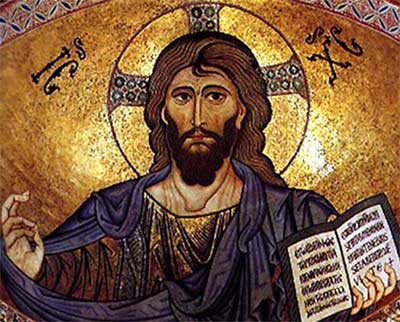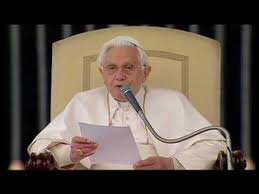 Vatican City, 15 February 2012 Vatican Radio-
Vatican City, 15 February 2012 Vatican Radio-
In his catechesis in Italian, to a packed Paul VI audience hall, the Holy Father said “In our school of prayer last week I spoke about Christ’s prayer on the Cross, taken from Psalm 22 “My God, my God why have you forsaken me”. Now I would like to continue to meditate on the prayers of Jesus on the cross in the imminence of death and today I would like to focus on the narrative that we encounter in the Gospel of St. Luke. The Evangelist has handed down three words of Jesus on the cross, two of which – the first and third – are explicitly prayers to the Father. The second one consists of the promise made to the so-called good thief crucified with him, answering, in fact, the thief’s prayer, Jesus reassures him: “Truly I tell you today will be with me in Paradise” (Lk 23 , 43). The two prayers of the dying Jesus and the acceptance of the repentant sinner’s supplication to Him are suggestively entwined in Luke’s account. Jesus both prays to the Father and hears the prayer of this man who is often called latro poenitens, “the repentant thief.”
Let us dwell on these three prayers of Jesus. The first pronounced immediately after being nailed to the cross, while the soldiers are dividing his garments as sad reward of their service. In a way this gesture closes the process of crucifixion. St. Luke writes: “When they came to the place called the Skull, they crucified him and the criminals there, one on his right, the other on his left. [Then Jesus said, “Father, forgive them, they know not what they do.”] They divided his garments by casting lots “(23.33 to 34). The first prayer that Jesus addresses to the Father is one of intercession: He asks forgiveness for his executioners. With this, Jesus in person carries out what he had taught in the Sermon on the Mount when he said: ” But to you who hear I say, love your enemies, do good to those who hate you ” (Lk 6:27) and also promised to those who can forgive, “then your reward will be great and you will be children of the Most High ” (v. 35). Now, from the cross, He not only forgives his executioners, but speaks directly to the Father interceding on their behalf.
This is attitude of Jesus’ finds a moving ‘imitation’ in the story of the stoning of St. Stephen, the first martyr. Stephen, in fact, coming to an end, “knelt down and cried with a loud voice:” Lord, do not hold this sin against them”. That said, he died “(Acts 7.60). It was his last word. The comparison of the prayer for forgiveness of Jesus and that of the martyr is significant. Stephen turns to the Risen Lord and calls for his murder – a gesture clearly defined by the expression “this sin” – is not imputed against those who stone him. Jesus addresses the Father on the cross and not only asks for forgiveness for his executioners, but also offers a reading of what is happening. In his words, in fact, the men who crucify him “know not what they do” (Luke 23:34). He gives that ignorance, “not knowing” as the reason for the request for forgiveness from the Father, for this ignorance leaves the way open to conversion, as is the case in the words that the centurion spoke at Jesus’ death: ” This man was innocent beyond doubt”(v. 47), he was the Son of God”. It is a consolation for all times and for all men that the Lord, both for those who really did not know – the killers – and those who knew and condemned him, gives ignorance as the reason for asking for forgiveness – he sees it as a door that can open us up to
repentance “(Jesus of Nazareth, II, 233).
The second prayer of Jesus on the cross as told by St. Luke is a word of hope, is His answer to the prayer of one of the two men crucified with Him. The good thief before Jesus returned to himself and repents, he feels himself to be before the Son of God, who reveals the Face of God, and prays: “Jesus, remember me when you come into your kingdom” (v. 42). The Lord’s answer to this prayer goes far beyond the supplication, he says: ” Amen, I say to you, today you will be with me in Paradise” (v. 43). Jesus is aware of entering directly into communion with the Father and of reopening the path for the man to God’s paradise. So through this response gives the firm hope that the goodness of God can touch us even at the last moment of life and that sincere prayer, even after a life of wrong, meets the open arms of the good Father who awaits the return of his son.
“no matter how hard the trial, difficult the problem, heavy the suffering, we never fall from the hands of God”

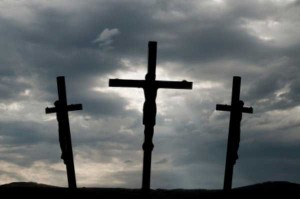
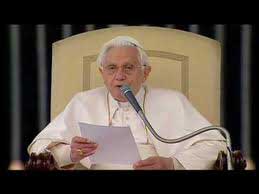
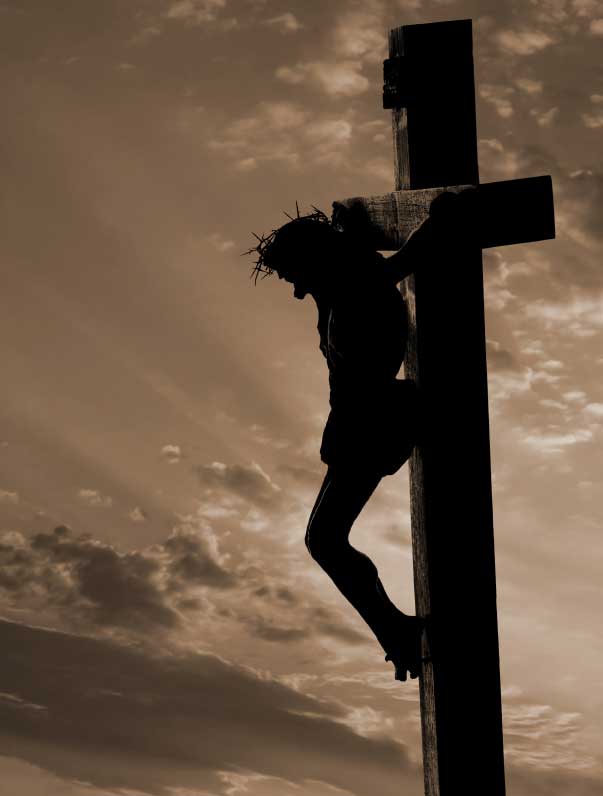
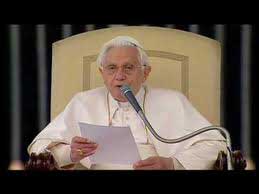
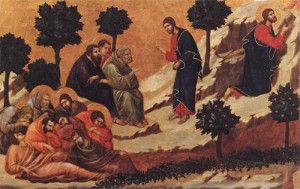
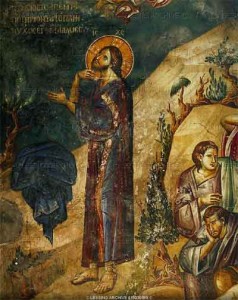

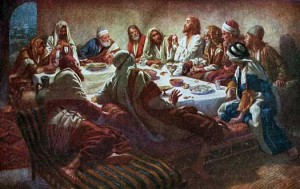
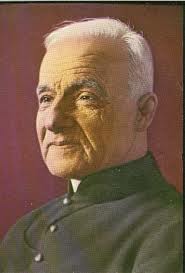
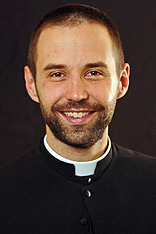
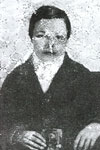
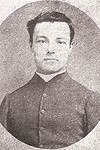
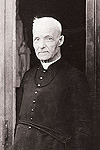

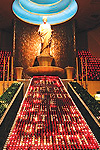
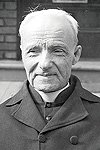
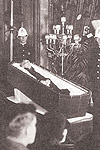
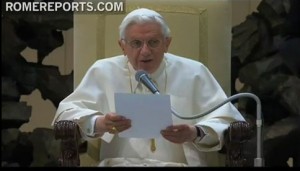
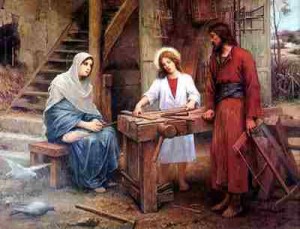
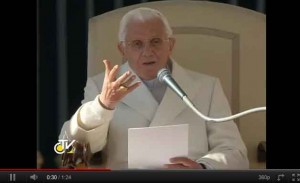 His relationship with the Father”, by looking up to heaven. “The narrative shows, then, that human involvement with the sick man led Jesus into prayer. His unique relationship with the Father emerges once again, His identity as Only-begotten Son. In Him, through His person, the healing and beneficial action of God is made present among us”.
His relationship with the Father”, by looking up to heaven. “The narrative shows, then, that human involvement with the sick man led Jesus into prayer. His unique relationship with the Father emerges once again, His identity as Only-begotten Son. In Him, through His person, the healing and beneficial action of God is made present among us”.